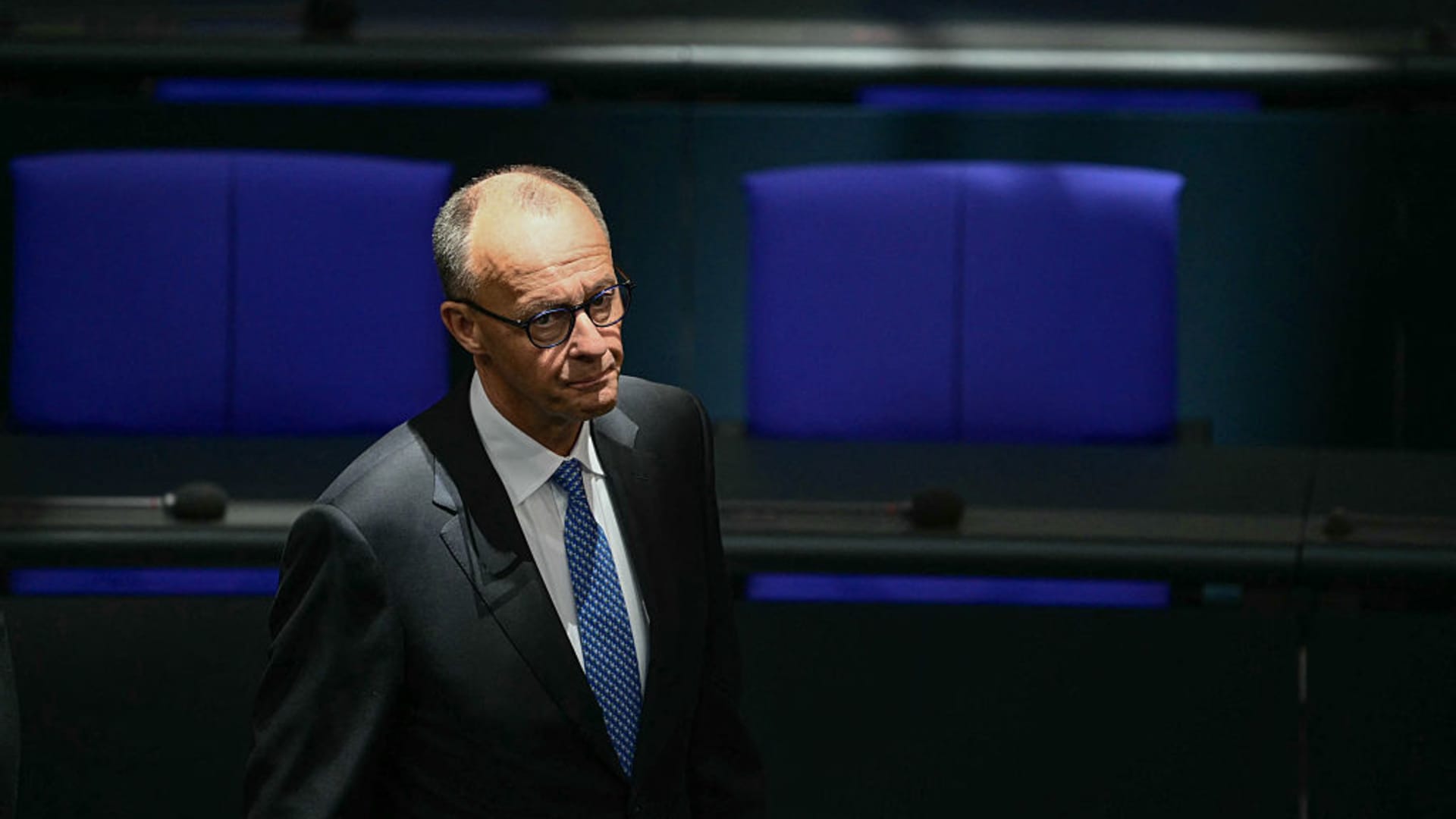The Unprecedented Election of Friedrich Merz as German Chancellor: A Political Drama Unfolds
A Political Earthquake in Berlin
The German Bundestag witnessed history in the making when Friedrich Merz, the conservative frontrunner expected to smoothly assume the chancellorship, stumbled in the first parliamentary vote. Falling six votes short of the required 316, Merz’s initial failure sent shockwaves through Berlin’s political circles—marking the first time in postwar Germany that a chancellor-designate failed to secure an immediate majority. This unexpected twist transformed what was anticipated to be a routine transition into a high-stakes political drama, exposing fractures within the ruling coalition and raising urgent questions about governance stability.
Breaking with Tradition: Why the First Vote Failed
Germany’s political playbook had no precedent for this scenario. Historically, chancellor elections followed a predictable script: the leading candidate, backed by a pre-negotiated coalition, secured victory in the first round. Merz’s CDU/CSU alliance had emerged strongest in the February elections with 28.5% of the vote, yet this popular mandate didn’t automatically translate into parliamentary cohesion.
Several factors contributed to the shock result:
The aftermath was chaotic. Opposition leaders seized the moment to declare the coalition “unworkable,” while Merz’s team scrambled to regroup before the constitutionally mandated second vote later that day.
The Second Vote: A Narrow Escape
Twelve tense hours later, the Bundestag reconvened. This time, Merz’s allies deployed every tool of persuasion—from last-minute policy concessions to direct appeals to wavering MPs. The result: a razor-thin victory with 325 votes, just nine above the threshold.
Key dynamics shaped the turnaround:
– Pressure Campaign: Coalition leaders emphasized the constitutional crisis that would follow a second failure, compelling reluctant members to fall in line.
– Opposition Calculus: The Social Democrats (SPD) and far-right AfD, sensing Merz’s vulnerability, reportedly encouraged their members to abstain, inadvertently lowering the majority threshold.
– Symbolic Gestures: Merz softened his rhetoric on contentious issues like climate policy, assuring Greens their priorities wouldn’t be sidelined.
Yet the narrow margin laid bare the government’s fragility. As one political analyst noted, “Merz won the battle but inherited a war—his coalition now governs on borrowed time.”
Governing Challenges Ahead
Merz assumes office amid Germany’s most turbulent period in decades:
Economic Headwinds
Europe’s industrial powerhouse faces a prolonged recession, with manufacturing output shrinking for five consecutive quarters. Merz’s business-friendly platform—tax cuts and deregulation—clashes with coalition partners’ demands for social welfare expansions.
Foreign Policy Dilemmas
Strained relations with Washington over trade and defense spending loom large. Meanwhile, the EU’s unity on Ukraine aid shows signs of fraying—a crisis Merz must navigate without alienating either Eastern European allies or his own pacifist-leaning Greens.
The Far-Right Surge
The AfD, now polling at 22%, capitalizes on immigration fears and economic anxiety. Merz’s hardline stance on migration risks fueling their narrative, while moderation could alienate his conservative base.
Leadership Under the Microscope
Merz’s managerial reputation—forged as a corporate lawyer and CDU faction leader—faces its ultimate test. His initial missteps reveal vulnerabilities:
– Communication Gaps: Critics argue his technocratic style lacks the emotive resonance needed to unify a fractured electorate.
– Coalition Mechanics: Unlike Angela Merkel’s consensus-driven approach, Merz’s transactional tactics may struggle to sustain three-party governance.
– Crisis Readiness: The voting debacle exposed his team’s failure to anticipate dissent—a warning sign for future crises.
Yet opportunities exist. By embracing pragmatic compromise (e.g., green-lightingsubsidies for solar energy to placate the Greens while cutting corporate taxes), Merz could stabilize his tenure.
Conclusion
A Resilience That Redefines German Politics
Friedrich Merz’s tumultuous ascent to the chancellorship underscores a new era of German politics—one where traditional certainties no longer apply. His ability to recover from an unprecedented first-round humiliation demonstrates tactical adaptability, but governing Germany’s fragile coalition will demand strategic vision.
The road ahead is fraught with pitfalls: economic stagnation, geopolitical tensions, and an emboldened far-right. Yet, if Merz can translate his survival instinct into consensus-building, this rocky start may become a footnote rather than a harbinger. For now, Berlin—and the world—watches closely as Germany’s untested leader steps onto history’s stage, where resilience will matter as much as ideology.











